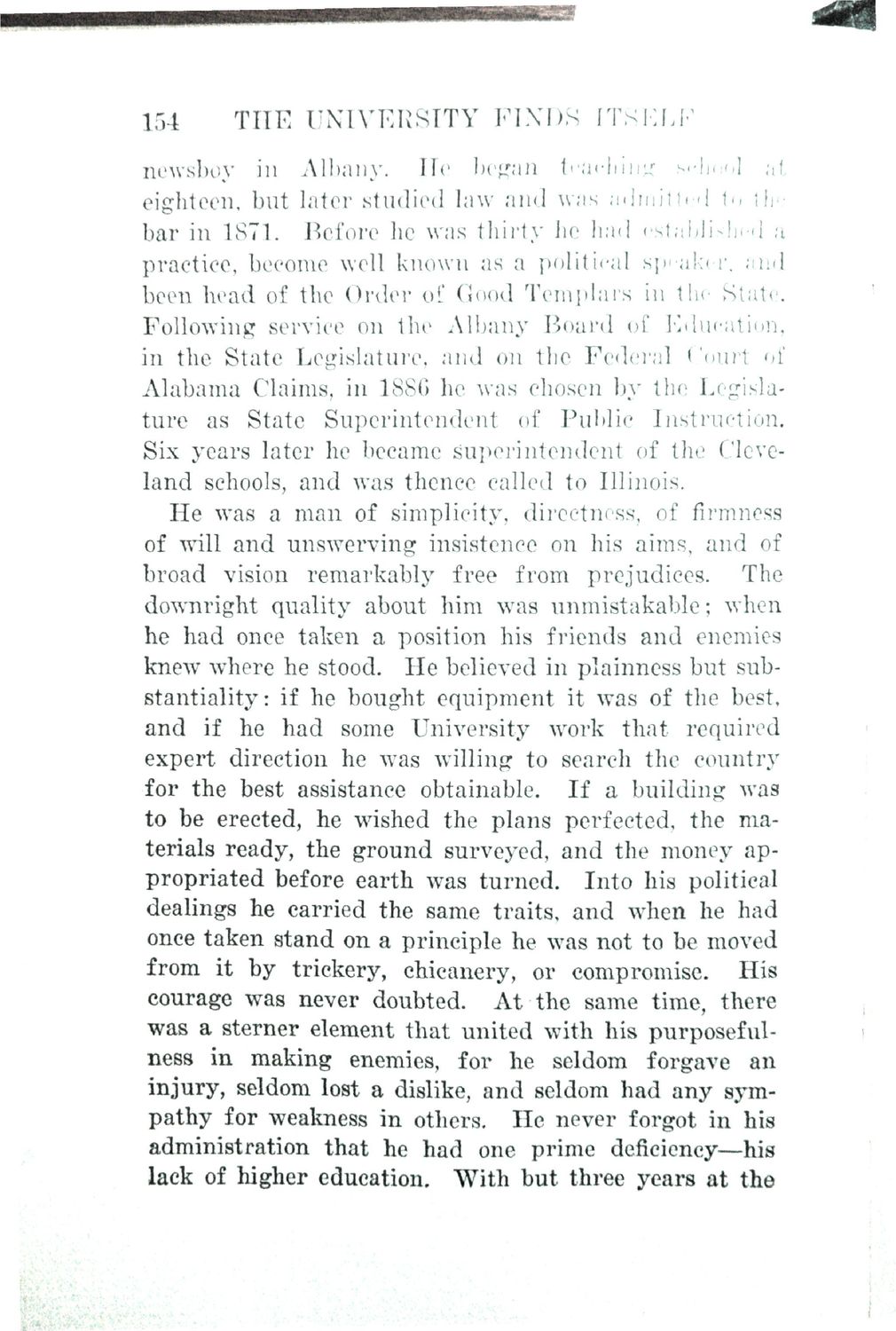| |
| |
Caption: Book - History of the University (Nevins)
This is a reduced-resolution page image for fast online browsing.

EXTRACTED TEXT FROM PAGE:
154 THE UNIVERSITY FINDS ITSELF newsboy in Albany. He began teaching school at eighteen, but later studied law and was admitted to the bar in 1871. Before he was thirty he had established a practice, become well known as a political speaker, and been head of the Order of Good Templars in the State. Following service on the Albany Board of Education, in the State Legislature, and on the Federal Court of Alabama Claims, in 1886 he was chosen by the Legislature as State Superintendent of Public Instruction. Six years later he became superintendent of the Cleveland schools, and was thence called to Illinois. He was a man of simplicity, directness, of firmness of will and unswerving insistence on his aims, and of broad vision remarkably free from prejudices. The downright quality about him was unmistakable; when he had once taken a position his friends and enemies knew where he stood. He believed in plainness but substantiality: if he bought equipment it was of the best, and if he had some University work that required expert direction he was willing to search the country for the best assistance obtainable.. If a building was to be erected, he wished the plans perfected, the materials ready, the ground surveyed, and the money appropriated before earth was turned. Into his political dealings he carried the same traits, and when he had once taken stand on a principle he was not to be moved from it by trickery, chicanery, or compromise. His courage was never doubted.|§At the same time, there was a sterner element that united with his purposefulness in making enemies, for he seldom forgave an injury, seldom lost a dislike, and seldom had any sympathy for weakness in others. He never forgot in his administration that he had one prime deficiency—his lack of higher education. With but three years at the
| |